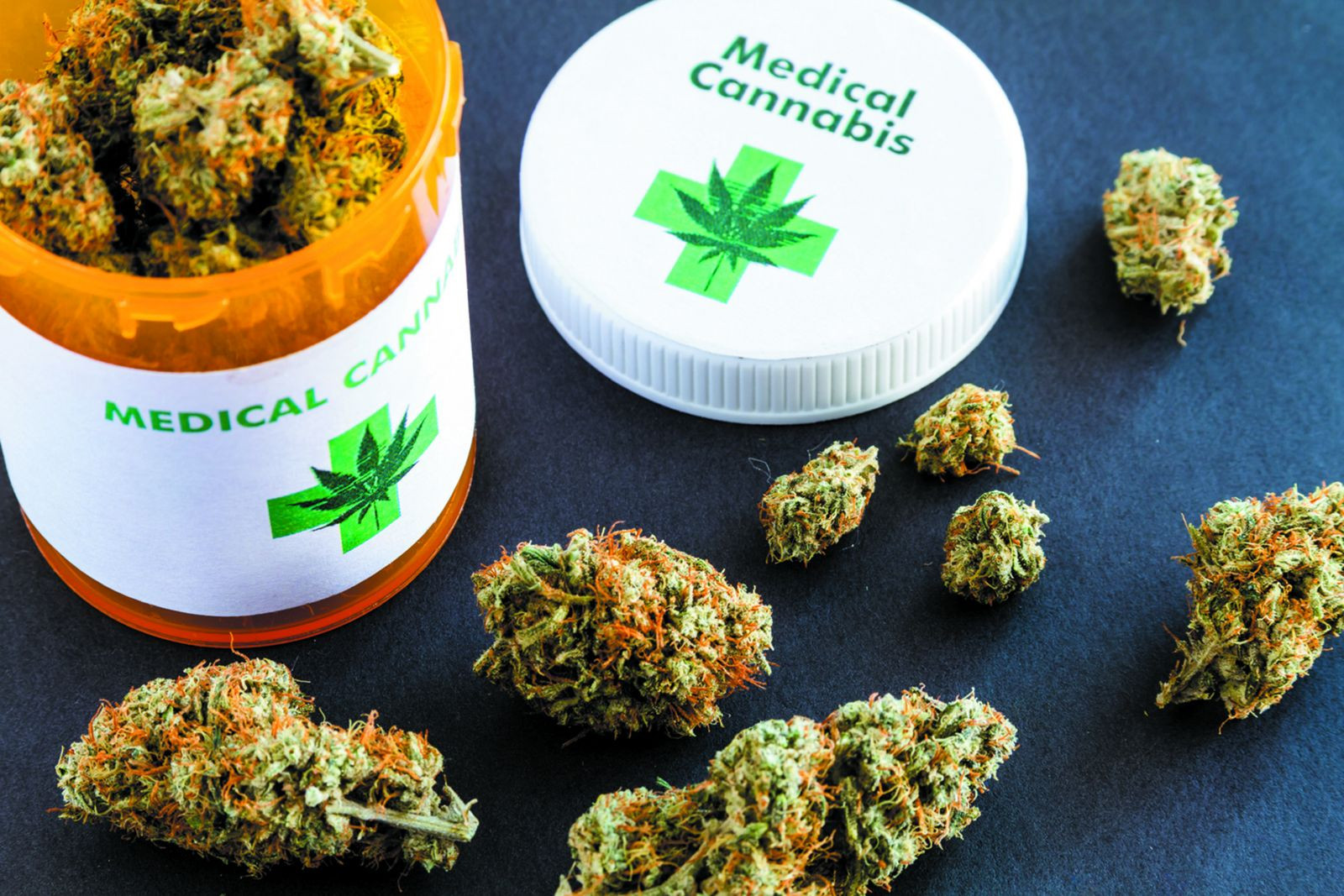Shedding Light on What Medical Cannabis Can Heal: a Thorough Analysis of Its Healing Qualities
In recent years, there has actually been a growing rate of interest in the therapeutic possibility of medical marijuana. While anecdotal proof abounds, a thorough exam of the scientific data regarding the performance of medical marijuana in dealing with these problems is required.
Persistent Pain Administration
Chronic pain administration remains a crucial aspect of medical treatment, necessitating an extensive strategy for reliable therapy. In recent times, medical marijuana has arised as a potential healing choice for people experiencing persistent discomfort conditions. The endocannabinoid system, which plays a critical role hurting modulation, has actually been targeted by cannabis-based therapies to minimize signs and enhance high quality of life for clients.

In addition, clinical marijuana offers an encouraging alternative for clients that experience intolerable adverse effects from typical discomfort drugs. Its ability to address pain with a various mechanism makes it a valuable enhancement to the toolbox of treatments readily available for persistent pain monitoring.
Epilepsy Treatment Potential
Clinical cannabis has actually shown encouraging capacity in the therapy of epilepsy, providing a novel restorative method for taking care of seizures in patients. Epilepsy is a neurological disorder identified by frequent seizures, impacting people of every ages. Standard treatments for epilepsy consist of antiepileptic medications, yet these medicines may not work for all people and can have substantial side impacts.
Research on the usage of medical marijuana for epilepsy has actually revealed encouraging results. Cannabidiol (CBD), a non-psychoactive compound located in marijuana, has been particularly highlighted for its anticonvulsant properties. Studies have actually revealed that CBD can minimize the frequency and seriousness of seizures in people with treatment-resistant kinds of epilepsy, such as Dravet syndrome and Lennox-Gastaut disorder.
Additionally, the FDA has actually authorized a CBD-based medication, Epidiolex, for the therapy of seizures connected with these serious forms of epilepsy. This milestone underscores the expanding recognition of clinical marijuana as an important therapeutic choice for managing epilepsy and supplies wish for people that have actually not responded well to traditional therapies.
Nausea Relief Perks
The reduction of nausea or vomiting via the usage of marijuana has actually been increasingly recognized for its therapeutic benefits in various medical conditions. Queasiness and vomiting are typical signs experienced by people undertaking radiation treatment, those with gastrointestinal disorders, and people with persistent pain conditions. Medical marijuana, with its energetic compounds such as THC and CBD, has shown pledge in giving relief from nausea.

Additionally, medical cannabis supplies an all-natural choice for people who do not react well to typical anti-nausea drugs or that experience severe side results from these medicines. Clients undertaking chemotherapy, in particular, have reported substantial renovations in their lifestyle when Continued utilizing cannabis to take care of nausea or vomiting. As research study around remains to expand, clinical cannabis is increasingly being considered as a useful choice for nausea relief in numerous clinical settings.
Anxiousness Reduction Effects
Researches have actually demonstrated the possibility of cannabis in reducing anxiousness signs through its communication with the endocannabinoid system. The endocannabinoid system plays a critical function in regulating feelings, including anxiousness, by preserving homeostasis in the body. Cannabinoids in cannabis, such as THC and CBD, engage with the endocannabinoid receptors in the brain, specifically the CB1 and CB2 receptors, to regulate anxiety-related reactions.
Patients with conditions like generalised anxiousness disorder (GAD), social stress and anxiety disorder, and trauma (PTSD) may take advantage of the anxiolytic buildings of cannabis (Medical Marijuana Doctor Clinton MS). Additional study is required to identify ideal does, delivery techniques, and long-lasting effects on stress and anxiety administration.
Potential for Swelling Control
With its well-known anti-inflammatory residential properties, marijuana has actually revealed guarantee in possibly managing swelling within the body. Swelling is the body's natural action to injury or infection, but when it ends up being chronic, it can add to different illness such as arthritis, inflammatory bowel disease, and even cardiovascular disease. Research recommends that the cannabinoids located in marijuana, such as THC and CBD, can aid manage the immune feedback and lower inflammation.
Research studies have shown that cannabis can communicate with the endocannabinoid system, which plays a additional reading crucial role in managing inflammation. By targeting the cannabinoid receptors, cannabis compounds can modulate the immune reaction, causing a decline in inflammation levels. This makes cannabis a potential candidate for handling inflammatory problems where typical therapies have fallen short.
Furthermore, cannabis-derived items like CBD oil have gained appeal for their anti-inflammatory buildings, with several individuals utilizing them as official statement an all-natural remedy for problems connected with inflammation. While even more research study is needed to totally comprehend the mechanisms behind cannabis's anti-inflammatory results, present findings show promising outcomes for the prospective use of medical marijuana in managing inflammation.
Conclusion
Finally, medical cannabis has actually revealed appealing restorative properties in taking care of persistent pain, dealing with epilepsy, relieving nausea, reducing stress and anxiety, and controlling swelling. Its prospective benefits in numerous medical problems highlight the value of further study and exploration right into its medicinal use. The evidence recommends that medical marijuana could be a valuable choice therapy option for individuals looking for remedy for an array of conditions and symptoms.
In current years, clinical cannabis has arised as a potential restorative alternative for individuals enduring from chronic pain problems.Clinical marijuana has actually shown promising capacity in the treatment of epilepsy, using an unique healing approach for managing seizures in clients. As research study in this location proceeds to expand, clinical marijuana is significantly being considered as a beneficial option for queasiness alleviation in various medical setups.
In verdict, medical cannabis has actually shown encouraging restorative residential properties in managing chronic pain, treating epilepsy, easing nausea or vomiting, lowering anxiousness, and controlling inflammation. The evidence suggests that medical marijuana could be a useful option therapy choice for individuals looking for relief from a variety of signs and symptoms and problems.